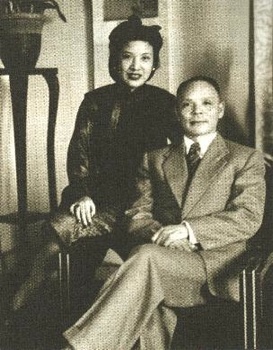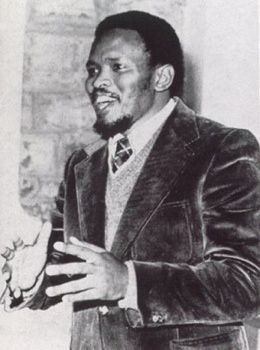I have started a new translation of this poem by Guru Nanak about dancing.
ਆਸਾ ਮਹਲਾ ੧ ॥
आसा महला १ ॥
Āsā mėhlā 1.
Aasaa, First Mehl:
ਵਾਜਾ ਮਤਿ ਪਖਾਵਜੁ ਭਾਉ ॥
वाजा मति पखावजु भाउ ॥
vājā maṯ pakẖāvaj bẖā▫o.
Make your intellect your instrument, and love your tambourine;
ਹੋਇ ਅਨੰਦੁ ਸਦਾ ਮਨਿ ਚਾਉ ॥
होइ अनंदु सदा मनि चाउ ॥
Ho▫e anand saḏā man cẖā▫o.
thus bliss and lasting pleasure shall be produced in your mind.
ਏਹਾ ਭਗਤਿ ਏਹੋ ਤਪ ਤਾਉ ॥
एहा भगति एहो तप ताउ ॥
Ėhā bẖagaṯ eho ṯap ṯā▫o.
This is devotional worship, and this is the practice of penance.
ਇਤੁ ਰੰਗਿ ਨਾਚਹੁ ਰਖਿ ਰਖਿ ਪਾਉ ॥੧॥
इतु रंगि नाचहु रखि रखि पाउ ॥१॥
Iṯ rang nācẖahu rakẖ rakẖ pā▫o. ||1||
So dance in this love, and keep the beat with your feet. ||1||
ਪੂਰੇ ਤਾਲ ਜਾਣੈ ਸਾਲਾਹ ॥
पूरे ताल जाणै सालाह ॥
Pūre ṯāl jāṇai sālāh.
Know that the perfect beat is the Praise of the Lord;
ਹੋਰੁ ਨਚਣਾ ਖੁਸੀਆ ਮਨ ਮਾਹ ॥੧॥ ਰਹਾਉ ॥
होरु नचणा खुसीआ मन माह ॥१॥ रहाउ ॥
Hor nacẖṇā kẖusī▫ā man māh. ||1|| rahā▫o.
other dances produce only temporary pleasure in the mind. ||1||Pause||
ਸਤੁ ਸੰਤੋਖੁ ਵਜਹਿ ਦੁਇ ਤਾਲ ॥
सतु संतोखु वजहि दुइ ताल ॥
Saṯ sanṯokẖ vajėh ḏu▫e ṯāl.
Play the two cymbals of truth and contentment.
ਪੈਰੀ ਵਾਜਾ ਸਦਾ ਨਿਹਾਲ ॥
पैरी वाजा सदा निहाल ॥
Pairī vājā saḏā nihāl.
Let your ankle bells be the lasting Vision of the Lord.
ਰਾਗੁ ਨਾਦੁ ਨਹੀ ਦੂਜਾ ਭਾਉ ॥
रागु नादु नही दूजा भाउ ॥
Rāg nāḏ nahī ḏūjā bẖā▫o.
Let your harmony and music be the elimination of duality.
ਇਤੁ ਰੰਗਿ ਨਾਚਹੁ ਰਖਿ ਰਖਿ ਪਾਉ ॥੨॥
इतु रंगि नाचहु रखि रखि पाउ ॥२॥
Iṯ rang nācẖahu rakẖ rakẖ pā▫o. ||2||
So dance in this love, and keep the beat with your feet. ||2||
ਭਉ ਫੇਰੀ ਹੋਵੈ ਮਨ ਚੀਤਿ ॥
भउ फेरी होवै मन चीति ॥
Bẖa▫o ferī hovai man cẖīṯ.
Let the fear of God within your heart and mind be your spinning dance,
ਬਹਦਿਆ ਉਠਦਿਆ ਨੀਤਾ ਨੀਤਿ ॥
बहदिआ उठदिआ नीता नीति ॥
Bahḏi▫ā uṯẖ▫ḏi▫ā nīṯā nīṯ.
and keep up, whether sitting or standing.
ਲੇਟਣਿ ਲੇਟਿ ਜਾਣੈ ਤਨੁ ਸੁਆਹੁ ॥
लेटणि लेटि जाणै तनु सुआहु ॥
Letaṇ let jāṇai ṯan su▫āhu.
To roll around in the dust is to know that the body is only ashes.
ਇਤੁ ਰੰਗਿ ਨਾਚਹੁ ਰਖਿ ਰਖਿ ਪਾਉ ॥੩॥
इतु रंगि नाचहु रखि रखि पाउ ॥३॥
Iṯ rang nācẖahu rakẖ rakẖ pā▫o. ||3||
So dance in this love, and keep the beat with your feet. ||3||
ਸਿਖ ਸਭਾ ਦੀਖਿਆ ਕਾ ਭਾਉ ॥
सिख सभा दीखिआ का भाउ ॥
Sikẖ sabẖā ḏīkẖi▫ā kā bẖā▫o.
Keep the company of the disciples, the students who love the teachings.
ਗੁਰਮੁਖਿ ਸੁਣਣਾ ਸਾਚਾ ਨਾਉ ॥
गुरमुखि सुणणा साचा नाउ ॥
Gurmukẖ suṇ▫ṇā sācẖā nā▫o.
As Gurmukh, listen to the True Name.
ਨਾਨਕ ਆਖਣੁ ਵੇਰਾ ਵੇਰ ॥
नानक आखणु वेरा वेर ॥
Nānak ākẖaṇ verā ver.
O Nanak, chant it, over and over again.
ਇਤੁ ਰੰਗਿ ਨਾਚਹੁ ਰਖਿ ਰਖਿ ਪੈਰ ॥੪॥੬॥
इतु रंगि नाचहु रखि रखि पैर ॥४॥६॥
Iṯ rang nācẖahu rakẖ rakẖ pair. ||4||6||
So dance in this love, and keep the beat with your feet. ||4||6||
The original translation and poem is below.
With intellect as my guitar, and love as my drum;
the music resounding bliss in my heart
with this very devotion, and this very penance,
I dance in this color step after step ||1||
Know that the perfect beat is the singing of eternity;
the dance that fills the mind with pleasure. ||1||Pause||
Beating cymbals of truth and contentment
my ankle bells chime my lasting love.
Many melodies become one vibration,
duality eliminated step after step ||2|
Fear spins around my heart and mind,
whether sitting or standing.
when I finally lie down it will just be ashes
I dance in this color step after step ||3||
I go as a beggar in the company of the inspired
With their spirit may I be inspired myself
O Nanak, chant over and over again
the dance of angels step after step ||4||6||
With intellect as my guitar, and love as my drum;
the music resounding bliss in my heart
with this very devotion, and this very penance,
I dance in this color step after step ||1||
Know that the perfect beat is the singing of eternity;
the dance that fills the mind with pleasure. ||1||Pause||
Beating cymbals of truth and contentment
my ankle bells chime my lasting love.
Many melodies become one vibration,
duality eliminated step after step ||2|
Fear spins around my heart and mind,
whether sitting or standing.
when I finally lie down it will just be ashes
I dance in this color step after step ||3||
I go as a beggar in the company of the inspired
With their spirit may I be inspired myself
O Nanak, chant over and over again
the dance of angels step after step ||4||6||
ਆਸਾ ਮਹਲਾ ੧ ॥
आसा महला १ ॥
Āsā mėhlā 1.
Aasaa, First Mehl:
ਵਾਜਾ ਮਤਿ ਪਖਾਵਜੁ ਭਾਉ ॥
वाजा मति पखावजु भाउ ॥
vājā maṯ pakẖāvaj bẖā▫o.
Make your intellect your instrument, and love your tambourine;
ਹੋਇ ਅਨੰਦੁ ਸਦਾ ਮਨਿ ਚਾਉ ॥
होइ अनंदु सदा मनि चाउ ॥
Ho▫e anand saḏā man cẖā▫o.
thus bliss and lasting pleasure shall be produced in your mind.
ਏਹਾ ਭਗਤਿ ਏਹੋ ਤਪ ਤਾਉ ॥
एहा भगति एहो तप ताउ ॥
Ėhā bẖagaṯ eho ṯap ṯā▫o.
This is devotional worship, and this is the practice of penance.
ਇਤੁ ਰੰਗਿ ਨਾਚਹੁ ਰਖਿ ਰਖਿ ਪਾਉ ॥੧॥
इतु रंगि नाचहु रखि रखि पाउ ॥१॥
Iṯ rang nācẖahu rakẖ rakẖ pā▫o. ||1||
So dance in this love, and keep the beat with your feet. ||1||
ਪੂਰੇ ਤਾਲ ਜਾਣੈ ਸਾਲਾਹ ॥
पूरे ताल जाणै सालाह ॥
Pūre ṯāl jāṇai sālāh.
Know that the perfect beat is the Praise of the Lord;
ਹੋਰੁ ਨਚਣਾ ਖੁਸੀਆ ਮਨ ਮਾਹ ॥੧॥ ਰਹਾਉ ॥
होरु नचणा खुसीआ मन माह ॥१॥ रहाउ ॥
Hor nacẖṇā kẖusī▫ā man māh. ||1|| rahā▫o.
other dances produce only temporary pleasure in the mind. ||1||Pause||
ਸਤੁ ਸੰਤੋਖੁ ਵਜਹਿ ਦੁਇ ਤਾਲ ॥
सतु संतोखु वजहि दुइ ताल ॥
Saṯ sanṯokẖ vajėh ḏu▫e ṯāl.
Play the two cymbals of truth and contentment.
ਪੈਰੀ ਵਾਜਾ ਸਦਾ ਨਿਹਾਲ ॥
पैरी वाजा सदा निहाल ॥
Pairī vājā saḏā nihāl.
Let your ankle bells be the lasting Vision of the Lord.
ਰਾਗੁ ਨਾਦੁ ਨਹੀ ਦੂਜਾ ਭਾਉ ॥
रागु नादु नही दूजा भाउ ॥
Rāg nāḏ nahī ḏūjā bẖā▫o.
Let your harmony and music be the elimination of duality.
ਇਤੁ ਰੰਗਿ ਨਾਚਹੁ ਰਖਿ ਰਖਿ ਪਾਉ ॥੨॥
इतु रंगि नाचहु रखि रखि पाउ ॥२॥
Iṯ rang nācẖahu rakẖ rakẖ pā▫o. ||2||
So dance in this love, and keep the beat with your feet. ||2||
ਭਉ ਫੇਰੀ ਹੋਵੈ ਮਨ ਚੀਤਿ ॥
भउ फेरी होवै मन चीति ॥
Bẖa▫o ferī hovai man cẖīṯ.
Let the fear of God within your heart and mind be your spinning dance,
ਬਹਦਿਆ ਉਠਦਿਆ ਨੀਤਾ ਨੀਤਿ ॥
बहदिआ उठदिआ नीता नीति ॥
Bahḏi▫ā uṯẖ▫ḏi▫ā nīṯā nīṯ.
and keep up, whether sitting or standing.
ਲੇਟਣਿ ਲੇਟਿ ਜਾਣੈ ਤਨੁ ਸੁਆਹੁ ॥
लेटणि लेटि जाणै तनु सुआहु ॥
Letaṇ let jāṇai ṯan su▫āhu.
To roll around in the dust is to know that the body is only ashes.
ਇਤੁ ਰੰਗਿ ਨਾਚਹੁ ਰਖਿ ਰਖਿ ਪਾਉ ॥੩॥
इतु रंगि नाचहु रखि रखि पाउ ॥३॥
Iṯ rang nācẖahu rakẖ rakẖ pā▫o. ||3||
So dance in this love, and keep the beat with your feet. ||3||
ਸਿਖ ਸਭਾ ਦੀਖਿਆ ਕਾ ਭਾਉ ॥
सिख सभा दीखिआ का भाउ ॥
Sikẖ sabẖā ḏīkẖi▫ā kā bẖā▫o.
Keep the company of the disciples, the students who love the teachings.
ਗੁਰਮੁਖਿ ਸੁਣਣਾ ਸਾਚਾ ਨਾਉ ॥
गुरमुखि सुणणा साचा नाउ ॥
Gurmukẖ suṇ▫ṇā sācẖā nā▫o.
As Gurmukh, listen to the True Name.
ਨਾਨਕ ਆਖਣੁ ਵੇਰਾ ਵੇਰ ॥
नानक आखणु वेरा वेर ॥
Nānak ākẖaṇ verā ver.
O Nanak, chant it, over and over again.
ਇਤੁ ਰੰਗਿ ਨਾਚਹੁ ਰਖਿ ਰਖਿ ਪੈਰ ॥੪॥੬॥
इतु रंगि नाचहु रखि रखि पैर ॥४॥६॥
Iṯ rang nācẖahu rakẖ rakẖ pair. ||4||6||
So dance in this love, and keep the beat with your feet. ||4||6||



















 Singing oneness!
Singing oneness!